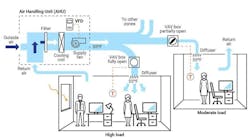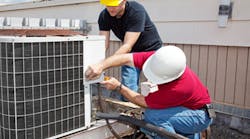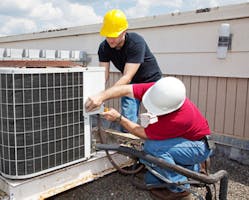As an HVAC contractor, you've very likely stumbled upon surety bonds while obtaining your contractor license with a specific state or municipality. The crucial function of HVAC technicians in construction and building maintenance requires high standard performance that's ensured by such licensing measures.
Besides knowing that you need a surety bond in the licensing process, it’s likely that bonding remains a mystery for many of you. Actually, surety bonds are not such an enigma. Below you can find all the information you might require as a contractor in terms of the nature of surety bonds and the process of obtaining them.
What is a Surety Bond?
First and foremost: a surety bond is not an insurance for your business. It is actually an insurance for your clients and for the state or municipality in which you are operating. The bond guarantees that your business will conform with any relevant laws and regulations. This ensures the proper completion of the work to which you have committed.
A surety bond is not an insurance for your business. It is actually insurance
for your clients and for the state or municipality in which you are operating.
In reality, the bond is a form of credit provided to your business by the surety. If you are not fulfilling your contractual obligations, a claim can be filed against you on the basis of the bond. At first, the bonding company will pay, but it will turn to your company for full payment afterwards. That is why the bonding process includes the signing of an indemnity agreement ensuring the reimbursement from your side.
In a more formal language, by obtaining a surety bond, the principal (you as a HVAC contractor) takes the responsibility to fulfill the terms of the contract signed with the obligee(the client).
The HVAC Contracting Business & Surety Bonds
Let’s get down to business. When do you need a surety bond as an HVAC contractor?
The requirements for getting a license as an HVAC contractor vary from state to state. Often they include obtaining a financial guarantee in the form of a surety bond and undergoing HVAC training and exams.
Some states don’t require a license, but it might be asked for by the local municipality or county. If there is a requirement for a license, you will likely need to get a surety bond in the process as well.
You can check the specific requirements of each state on websites such as the Contractor’s License Reference Site and National Contractors. Once you get some orientation from such sites, check with your local authorities. The relevant building authorities will provide you with the specific requirements and forms.
How to Get Bonded as an HVAC Specialist
Obtaining the surety bond needed for your HVAC license is a straightforward process. You will need to pay a bond price, which is a percentage of the bond amount.
Surety bonds agencies, such as JW Surety Bonds, can help you apply for a contractor license bond in all 50 states. The agency will assess your financial and business status and provide you with a quote. The price of the bond will vary depending on your personal credit score and, in some cases, on professional history. Getting bonded with bad credit is not impossible either, as some agencies are offering such an option.
Once you have gotten your bond, you will have to supply a copy to the authority that will issue your license, along with any other required documents and training and exam certificates.
Getting bonded is difficult only if you don’t have the story straight. With sufficient information, which is readily available from sureties and licensing authorities, obtaining your surety bond can be done quickly and efficiently.
Ralitsa Golemenova is a writer with diverse background ranging from media and communications through politics to social research. She has extensive experience in blogging on economic and construction topics. She is a regular contributor to the JW Surety Bonds blog.








